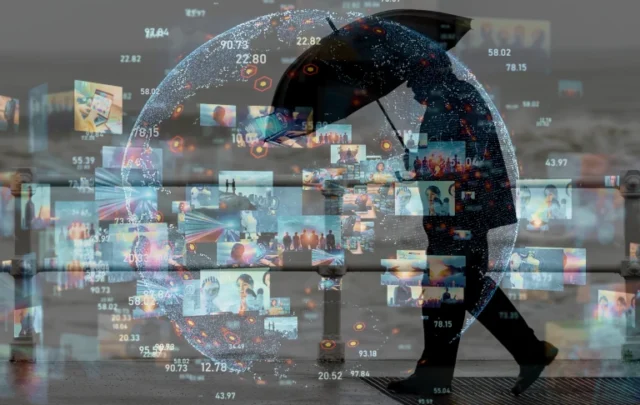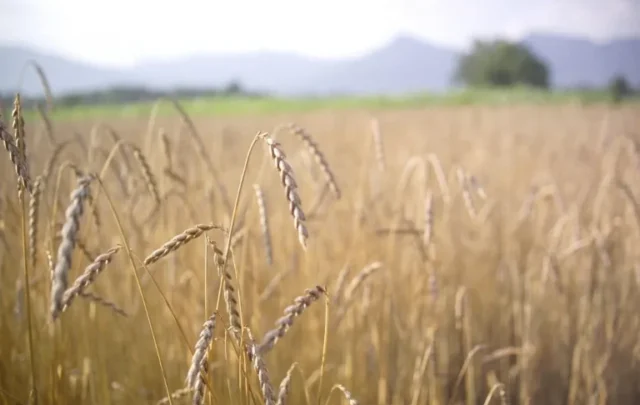
I’m a small town family physician in Ontario, Canada with an unremarkable practice consisting mainly of obesity, diabetes, arthritis, hypertension, anxiety / depression and the “worried well” who want to know why they feel tired all the time. Nothing unusual, nothing particularly glamorous. One thing which is different about my practice is that I became aware of peak oil five years ago, and since then I have been struggling to integrate this knowledge into my medical practice and family life.
I didn’t intend this to happen. In the summer of 2008 I did some background reading into peak oil, prompted by an article in our local newspaper. The more I read, the more concerned I became. It appeared that although oil wasn’t going to run out any time soon, the global production of oil would soon peak and then decline, if it hadn’t already done so. This, I discovered, was likely to result in two problems.
Firstly, there will be a decreasing amount of net energy. Unconventional oil, for example produced by “fracking” or from tar sands, uses a lot of energy to get it out of the ground compared to conventional oil, and therefore there is less energy left over to do useful work. Solar and wind energy, although useful in a small way, can never replace the energy we get from oil because there is too great a disparity in energy density. So the future touted by the mainstream media, that when the oil runs out we will all be driving around in electric cars, is simply bunk, because it’s not consistent with the laws of physics or geology.
Secondly, and more importantly, there will be a decreasing amount of food. Oil is used in every stage of modern food production, from plowing, fertilizing, planting, pesticides and herbicides, harvesting and processing right through to distributing the finished product to the consumer. As oil begins to get more expensive and go away, food will begin to get more expensive and go away, and ultimately, the people who depend on that food will have to go away. How long this process will take, how rapidly it will occur, and what it will feel like to live through it, are somewhat unknowable, but it’s hard to see how this will end well. Wind and solar power will not help us with the food problem, because you can’t get food out of a wind turbine or solar panel.
The next thing I discovered is that you rarely hear any of this from the mainstream media, economists or politicians, who are fixated on endless progress and infinite growth. In fact, most of what we are told by mainstream sources about energy and the economy is simply wrong. It took me about two years to get my head around this.
Once I had recovered from the initial shock of “peak oil awareness” I found that my perspective on my medical practice had changed, and in particular I became aware of some ethical dilemmas. Bariatric surgery, for example. This is surgery which is designed to make morbidly obese people lose weight, and it works by making the body less efficient at absorbing food. This may be an advantage in times of abundant food, but if food becomes scarce, this surgery could be a liability or even a death sentence. Ethically, patients undergoing these operations should be told of this risk so that they can give properly informed consent. However, this is not in accordance with mainstream medical practice and might result in a complaint, so I send off my morbidly obese patients for their operations and leave it up to the surgeon to obtain whatever informed consent he thinks appropriate.
Another problematic area is pharmaceuticals. Like many family physicians, we allow pharmaceutical reps to come to our office and present their latest products in return for giving us all a free lunch (it is said that there is no such thing as a free lunch, but our office staff think differently). When I first became peak oil aware, I used to ask the reps how their products were manufactured and what raw materials were used. I soon found out that they have a fairly limited script for their presentations, and this is not part of the script. None of them knew where their products came from. They all promised to find out from their head office and let me know, but none of them ever did. I suspect that most modern pharmaceuticals are manufactured from oil-based chemical feedstocks using processes which cannot be replicated outside a large chemical plant, which would make home-based production of essential pharmaceuticals like insulin almost impossible.
Herbal medicines seem to hold out more promise in a post-peak world. I have tried to educate myself about basic herbal medicines, but here too I ran into some ethical dilemmas. For symptom relief, there are a number of herbal medicines which have been shown in some clinical trials to have some effect: valerian for insomnia and black cohosh for menopausal symptoms, for example. If patients ask me about herbal medicines for their symptoms, I feel fairly comfortable recommending these, because if they don’t work, the worst that results for the patient is discomfort.
It is more difficult recommending alternative treatments for serious or life threatening conditions. For example, there is some evidence from controlled trials that ginseng is effective at relieving the symptoms of ischemic heart disease. However, if I were to treat an angina patient with ginseng and something went wrong, the malpractice lawyers and medical licensing board would be crawling over my charts with a microscope demanding to know what on earth I was thinking of. Unfortunately, this means that we will not be able to use many of these herbal medicines in routine medical practice until the pharmaceutical alternatives are no longer available, which is not really the ideal time to start learning.
Like most family physicians, a large part of my practice consists of prescribing antidepressants, tranquillizers and hypnotics to people with chronic low-grade anxiety, depression and insomnia. It is difficult to get accurate estimates of the prevalence of use of these drugs, but possibly about a quarter of the population of North America takes one or more of these drugs at any one time. I have often wondered why this is so. One possible explanation is that people feel a cognitive dissonance in today’s society which makes them feel psychologically uncomfortable. I feel the cognitive dissonance too, when the words spoken by politicians and economists are not consistent with the laws of physics and arithmetic or with objective reality. I manage my dissonance by reading and listening to alternative sources of information, for example blogs and podcasts. These present and explain a view of the world which is (to my mind) more consistent with reality and reassure me that I am not alone.
However, if you don’t have access to these alternative information sources, and all you have is the mainstream narrative, I can see how someone might have a vague feeling that something is wrong and that something bad is going to happen without being able to articulate what it is, and that these (normal) feelings might be misdiagnosed as “generalized anxiety disorder” or “depression” and treated with pharmaceuticals.
I spend most of my days in my medical office moving pixels around a computer screen and ordering tests and referrals, but I can see that in the future, this may not be a viable business model and that something more hands-on may be required. I have therefore assembled a library of information about how to deliver babies, pull teeth, set fractures and perform all sorts of other medical procedures which were familiar to our predecessors but which we have largely lost the skills to do. I wonder if I will ever be called upon to use them.
And finally, following the airline principle of “put on your own oxygen mask before helping others”, I have been paying attention to personal and family preparation. I have found the advice offered by the survivalist community helpful. I don’t agree with all survivalist philosophy (for example, I am not planning to collect an arsenal of guns), but many of the principles they advocate make good common sense, for example, having backup sources of food, water and energy for heating and cooking in case your primary sources fail, paying off your debts, and keeping some cash on hand in case the banking / credit card system fails.
I have been involving my children (aged between 6 and 12) in simple and fun vegetable gardening projects, on the basis that in the latter part of the 21st century, obtaining food may become more important to survival than having a university degree, so they might as well learn the basics now. My 12 year old has surprised me by telling me that she thinks that because of coming food shortages, there will be far fewer people at the end of the 21st century than there are now. This isn’t because I have told her – she just figured it out for herself. If a 12 year old can figure this out, maybe when our politicians grow up they will be able to do it too.
Dr Peter Gray is a family physician in Ontario, Canada.























